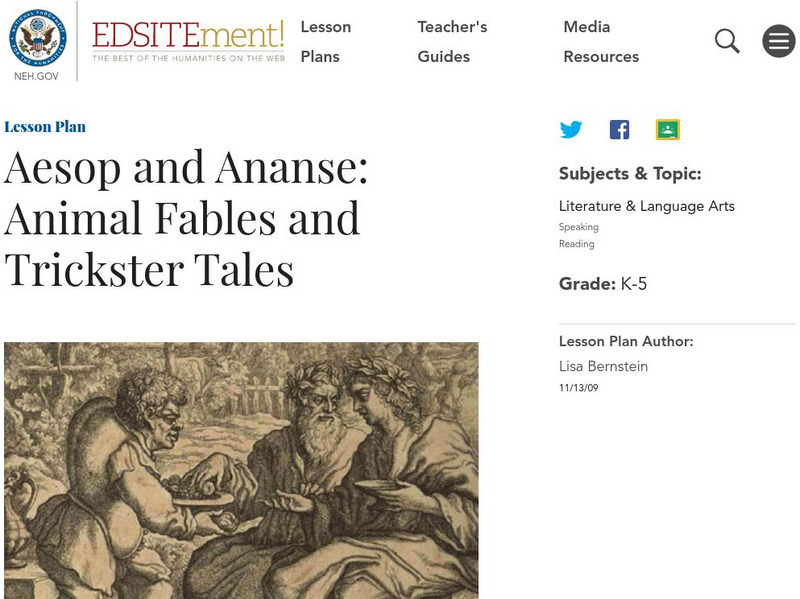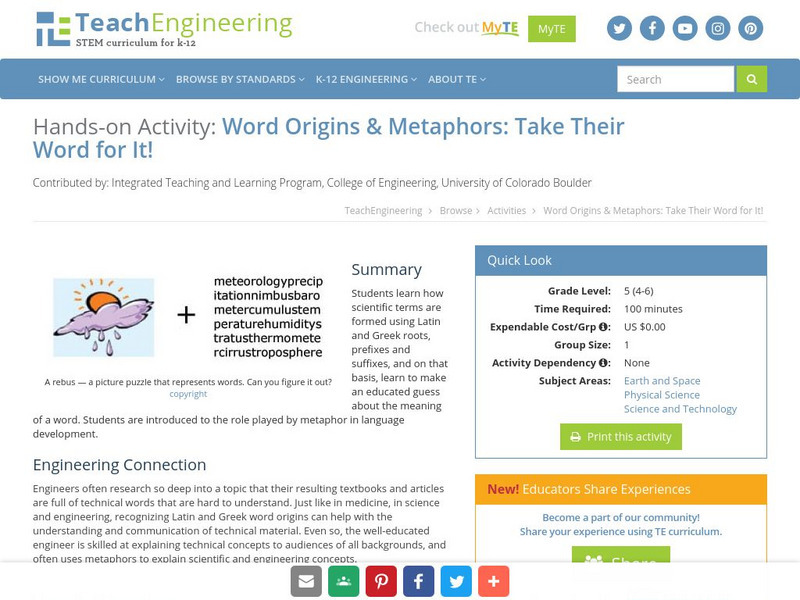Core Knowledge Foundation
Unit 7: Poetry
Over the course of a 12-lesson language arts unit, young scholars analyze a variety of poems taking a close look at figurative language and tone. They learn to compare and contrast, improve comprehension, and identify settings. To...
Core Knowledge Foundation
Unit 4: The Renaissance
The Renaissance is the theme of a five-week unit designed to boost reading comprehension, spelling, vocabulary, and expository writing skills. Scholars listen to and discuss daily readings and engage in skills practice activities...
Core Knowledge Foundation
Unit 3: Adventures of Don Quixote
Fifth graders explore the Adventures of Don Quixote in a four-week language arts unit. Scholars listen to and discuss a new chapter each day as well as examine vocabulary and practice word work including suffixes, subject-verb agreement,...
Core Knowledge Foundation
Unit 2: Early American Civilizations
Fifth graders explore early American civilizations in a four-week ELA unit. Every lesson offers an opportunity to read and discuss a selected passage followed by word work that covers vocabulary, grammar, and morphology. Learners write...
PBS
Reading Adventure Pack: Money
Money is the topic of a reading adventure pack. Third graders read two books—one fiction, one non-fiction—and complete a series of activities. Learners draw an item they wish to save money for, examine coins to start a collection, and...
PBS
The Symbolism of Sunflower Seeds in Ghost
Ghost by Jason Reynolds is a coming-of-age book that resonates with teenagers who have experienced childhood trauma. Explore the novel with an interactive resource that focuses on the author's use of symbolism, particularly with...
E Reading Worksheets
Idioms
This idiom worksheet will give your reluctant grammarians a change of heart about figurative language. Scholars read 15 sentences and then write the meaning of the idiom and the sentence in the space provided.
Super Teacher Worksheets
Idioms
If figurative language makes your kids feel blue or under the weather, use an activity focused on idioms to help them feel on top of the world. Kids complete a chart with seven idiomatic phrases, adding the meaning of each along with an...
Amazon Web Services
Idiom Dictionary
Examining idioms is a peace of cake when using this graphic organizer! Here, grammarians identify an idiom and use it in a sentence. Then they investigate its literal meaning versus its figurative meaning, and accompany each one with a...
K12 Reader
Proverbs and Adages: What’s the Meaning?
Your kids have probably heard these idioms before, but do they know what they mean? Help them learn that haste makes waste, an ill wind blows no good, and that ignorance is bliss with a list of popular expressions.
K12 Reader
Proverbs and Adages: What Do They Mean?
You shouldn't judge a book by its cover, but feel free to find the silver lining in a worksheet about common proverbs and adages. Learners read six popular adages and write their literal definitions on the lines provided.
K12 Reader
Finish the Proverbs and Adages
How many common idioms do you know? Test your knowledge with a set of ten phrases to complete. The idioms range in difficulty level, making it a good challenge for even advanced readers.
K12 Reader
Animal Proverbs and Adages
What will play when the cat's away? Practice figurative language with a list of proverbs about animals. Kids use the word bank at the top of the page to fill in the blanks based on their knowledge of common phrases.
K12 Reader
Proverbs and Adages Match
The grass may be greener on the other side, but a activity about proverbs and adages is sure to help readers of all levels master figurative language. Kids match the idioms in the first column to their literal meanings in the second...
All About Reading
Pirate Dictionary
Shiver me timbers, this here resource is a great way to teach young landlubbers to speak the language of the briny deep. Including over 30 different words and phrases, complete with definitions and guide words, this dictionary will...
Education Center
Penguin Puzzlers
Test your pupils' ability with analogies with a cute worksheet featuring penguins. Learners complete each penguin-related analogy by circling the best choice to complete each one. They then take the letters they circled and move them...
Curated OER
Idioms
Use this podcast instructional activity to familiarize scholars with the characteristics, history, and cultural implications of idioms. As part of the Walking Classroom curriculum, kids listen to a 12-minute podcast as they walk around...
Curated OER
Ye Olde English Sayings
Discover the historical roots of modern English with your young learners, and then discover the meaning of many old English sayings. What a great chance to explore the history behind many of the words and phrases we use today!
Curated OER
The Daily Idiom
What is an idiom? Learners identify and read common idioms. They discuss what idioms are, and are given a black line master embedded in the plan that has 100 common idioms. Next, they complete "The Daily Idiom" worksheet, which is...
Curated OER
Mighty Earth Movers
Note that although the publisher lists almost all of the Common Core standards for both math and language arts, you will most likely want to take the general topic and choose which area to focus on. Regarding math, pupils measure worms...
Curated OER
Just Lookin' For a Home
What is a boll weevil? Your class can find out that and more by following the activities included here. Pupils read an article, sing a boll weevil song, add to the song with their own original lyrics, illustrate the song, study the...
National Endowment for the Humanities
Neh: Edsit Ement: Animal Fables and Trickster Tales
Animals and tricksters appear in folk tales from a wide variety of cultures, especially those with strong oral storytelling traditions. Use this lesson plan to introduce young scholars to these characters and the lessons they were used...
ReadWriteThink
Read Write Think: Exploring World Cultures Through Folk Tales
Using international folklore as subject matter, lead your students in a unit to research literary forms and foreign countries. There is a printout available for instruction and assessment.
TeachEngineering
Teach Engineering: Take Their Word for It!
Students learn how scientific terms are formed using Latin and Greek roots, prefixes and suffixes, and on that basis, learn to make an educated guess about the meaning of a word. Students are introduced to the role played by metaphor in...

























